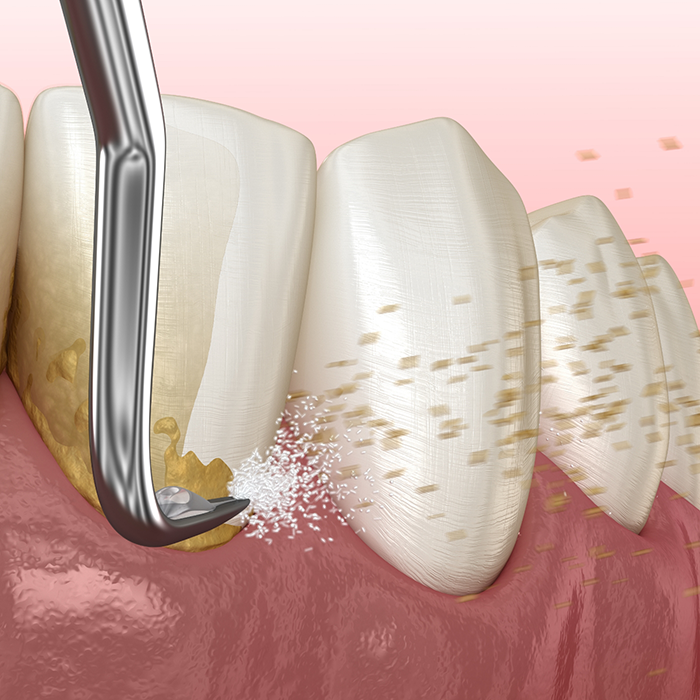Gum Disease Treatment Plantation
Defeating Bacteria to Reclaim Your Oral Health
Our team at Plantation Dental Studio and Implant Center does not focus solely on the health of your teeth but also on your gums, as they play a pivotal role in the function, appearance, and longevity of your smile. Their health and well-being can also affect your overall wellness, which is why we offer gum disease treatment in our Plantation dental office. Dr. Alejandro Lamas will evaluate the severity of the infection and determine which method of care will restore your gums as well as your oral health. If you notice that your soft oral tissues are bleeding when brushing and flossing, call our office right away to schedule an appointment.
Why Choose Plantation Dental Studio and Implant Center for Gum Disease Treatment?
- Digitally Enhanced Imaging Used for Accurate Dental Diagnoses
- Dentist Emphasizes Comfort During Every Visit
- CareCredit Dental Financing is Available
What Is Gum Disease?

Gum disease (periodontal disease) is a bacterial infection that attacks the soft oral tissues that help hold your teeth in place and prevent root exposure. Over time, you will notice that your gums bleed when brushing and flossing your teeth – a sign that indicates the earliest stage known as gingivitis. If treated right away with frequent dental cleanings and persistent at-home oral hygiene, the symptoms can be reversed.
However, if bacteria spread, they can create gum pockets that allow for easier access to the root and jawbone. If plaque and tartar continue to grow, the infection can enter the bloodstream and cause problems with your heart, brain, lungs, and more.
Affecting nearly half of the adult population in the U.S., Dr. Lamas and our team are here to help.
Symptoms of Gum Disease

It may not always be easy to identify gum disease in its earliest stages. Many people shrug off minor bleeding, assuming it will go away on its own; however, if you notice any of the following symptoms, you will not want to delay scheduling an appointment with our office:
- Brushing and flossing that causes gums to bleed
- Bad breath or halitosis that does not dissipate after brushing your teeth
- Swollen, tender gum tissue
- Loose teeth caused by advanced periodontitis that is affecting the bone
- Gum recession or elongated teeth
-
Changes in your bite caused by shifting teeth
Scaling & Root Planing

When examining your mouth during a regular checkup, we may suggest a deep cleaning, which is also known as scaling and root planing (SRP). This process involves clearing away all plaque and tartar build-up from around your teeth and gums as well as reshaping and smoothing out the roots. This not only encourages proper reattachment and healing but also lowers the chances of bacteria adhering in the future and causing additional damage. After undergoing SRP to improve your gum health, we recommend that you see us every three to four months for maintenance and close monitoring.
Antibiotic Therapy

Commonly used in combination with scaling and root planing, we may administer antibiotic therapy to target areas of bacteria that cannot be reached with SRP. We use ARESTIN©, which is a safe and effective antibiotic that slowly disperses once administered. The tiny microspheres enter the gum pockets to eliminate existing infection while also reducing the size of the pockets and controlling inflammation. Depending on the severity of your gum disease, we may include this method of treatment as part of your periodontal maintenance routine.
Gum Disease Can Also Affect Your Overall Health

The inflammation and infection that forms inside your mouth as a result of gum disease does not solely affect your gums, teeth, and jawbone. It has a wider reach – one that includes your body as a whole.
To better understand just how impactful this disease can be on your overall health, review the following details:
- Gum disease is closely linked to heart disease, stroke, and other cardiovascular complications.
- Gum disease can increase the risk of developing various cancers among men, including kidney, pancreatic, and blood cancer.
- Gum disease is commonly found in patients who have diabetes, as it can be difficult to manage blood sugar levels.
- Respiratory diseases, like pneumonia, are more likely to be found in individuals living with gum disease because the bacteria that grow inside the mouth can easily transfer to the lungs.

